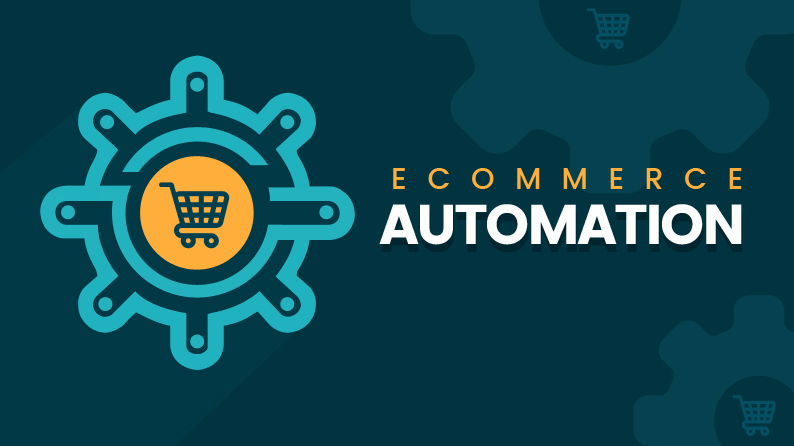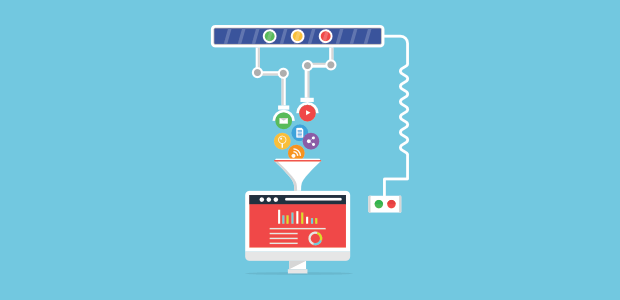
The top 6 benefits of automation in ecommerce
When it comes to attaining gradual growth, there are three things that you need to keep in mind:
- Save time
- Save money
- Sell more
It is that simple. But the reason why most of the businesses fail to attain growth is the fact that they only focus on the third aspect, completely ignoring the first two. This problem gets more aggravated in the ecommerce arena, where there have been numerous cases with online businesses selling in good numbers, yet not attaining corresponding growth numbers. The gains associated with selling more gets diminished if your input and running costs are also high.
Digital commerce has been on a continuous rise during the last decade, but the global pandemic has accelerated this trend even further. We all had to rethink our business models, how we work and where we work. Consequently consumer demands have changed as well. Shopping online is not about simply displaying products on a website and shipping them from A to B anymore. Your customers want vibrant online experiences. They want to know your story. They want personal interaction, and they want to be seen and treated as individuals.
These are epic times for both established businesses as well as startups to thrive – if you understand how to scale your business effectively
You and your employees may be doing so many “little” day-to-day tasks that you cannot focus on the things that matter most, like developing a new product line or implementing strategies that’ll take your business further. Instead you’re performing mundane repetitive tasks day in and day out, wasting precious time that could have been invested elsewhere.
And so you wonder, surely there must be a better way? And yes, of course there is! This is where ecommerce automation comes into play.
Put simply, ecommerce automation uses tools like the Flow Builder and Rule Builder to perform specific business tasks and processes – automatically and without human intervention. You set up the workflow, i.e. you define the triggers and actions to follow, and it runs. Done!
However, this doesn’t mean that your team members are suddenly replaceable and redundant. Automation doesn’t undermine the value of people – quite the opposite! People, their time, energy and input, are your most powerful resource. Automating business processes boosts both productivity and satisfaction as your team no longer needs to spend time on repetitive tasks that can easily be automated. Instead, they can focus on business needs that technology simply cannot do, like strategic thinking, problem-solving, and being creative. Which leads us straight to:
The top 6 benefits of automation in ecommerce
1. Ecommerce automation saves time and boosts efficiency
What are the daily chores that take up most of your time and resources? The more you can automate, the more gets done – even overnight.
Automation tools allow you to schedule sales promotions, automate new product releases, send customer emails, segment your customer profile data, apply discounts, track purchases, provide rewards, generate invoices, automate supplier interaction, and so much more. If you don’t have to do these tasks manually, imagine what you and your team could do with the extra time instead! Which brings us to the next point.
2. Increases team productivity and satisfaction
Automating business procedures could bring new zest and vibrancy into your team. It’s all about getting everyday tasks done better, faster, and at a more satisfying level. This frees up time to engage your employees in truly meaningful ways. With repetitive tasks left in the care of automation tools, your team will have more resources to work on things that need their pro-active involvement and creativity.
Together you can focus on growth strategies that will take your business to the next level.
Depending on your business model, these could include research, the development of a new product line, creating valuable content, establishing a personal connection with your customers as well as suppliers, implementing new market strategies, and many more. These efforts will leverage your growth potential and can never be replaced by automation.
3. Ecommerce automation boosts customer satisfaction...
Because happy customers are repeat customers, nothing determines your success as greatly as customer satisfaction. In today’s competitive market conditions it’s crucial to offer exceptional customer care, establish meaningful connections, and reinforce lasting brand loyalty.
While personal customer care is easy to handle in the early days of entrepreneurship with only a few customers, things become a little more tricky as you scale your business and reach a greater audience. Suddenly there are thousands of people wanting your products, your advice, and your attention – in different countries, in different time zones, and on different platforms (think social media etc.) You simply cannot be everywhere all of the time. But your ecommerce software can!
With automation in place, you can observe your customer’s journey and their level of engagement as they make their way around your online store. This allows you to facilitate and personalise their online shopping experience, empowering you to offer exceptional digital shopping moments.
Thanks to specific triggers and actions that you set with automation tools, you can identify your customers’ steps so that you know exactly what products and services to offer. Your customers can find what they’re looking for and purchase what they want without being recommended unsuitable products. In addition, you can send targeted messages to both new customers, existing customers and VIP clients, thus strengthening the connection to your brand further.

4. … and streamlines your marketing strategy
This goes hand in hand with the previous point about customer satisfaction. Automation tools like the Flow Builder and Rule Bilder offer a sophisticated segmentation process that allow you to place your customers into specific groups or categories. Some examples could be: Regular customers, VIP customers, international clients, first time buyers, customers only interested in certain products, B2B customers, and so on. You do this by giving them a tag. Following this, you can then automate what content and products you want to propose, and how you wish to communicate with them.
You can further see which customers regularly open your newsletters. These are the people most likely interested in special offers. Alternatively you could offer them rewards and bonuses for being loyal fans of your brand. You’ll also see who doesn’t engage with your email marketing at all. Maybe these people need different kinds of content? Why not ask? Send them an automated message and ask if there’s anything you could do to help them. These personal, and yet automated responses establish trust in your brand and should be included in your digital marketing strategy.
5. Ecommerce automation eliminates human error
Human error is inevitable, especially when you’re overworked and tired because your business is scaling so rapidly that you can hardly keep up. By setting and automating effective workflows you don’t have to constantly go back, check and correct errors, which can impact your business and your reputation dramatically. But automating your business processes means more than simply getting tasks done. Workflow automation can be an essential part of your daily business management to facilitate the processing of information – from customer data to invoices, order details, and so many others.
6. And finally, ecommerce automation improves supplier interaction
Working as efficiently as possible with your suppliers keeps everyone happy – you and your team, your suppliers, and ultimately your customers. Having smooth and effortless communication with your suppliers is crucial if you want to establish profitable, long-term relationships. And thanks to automation tools like the Flow Builder and Rule Builder, much of the communication can be automated.
For example, you can set up supplier tags and send regular updates. Your stock going below a certain number could be a trigger to send an automated message to your suppliers. And if you offer customisable products, automation tools allow you to alert your suppliers accordingly.
Of course, specific questions need to be answered personally. That is part of offering excellent customer service. But nonetheless, your suppliers will appreciate business operations moving quickly and seamlessly thanks to effective automation processes. Information doesn’t get lost or delayed, and there are fewer opportunities for error.
Again, this frees up valuable time and resources so that you can focus on those business needs that will scale and grow your business sustainably.
Source: Shopware
